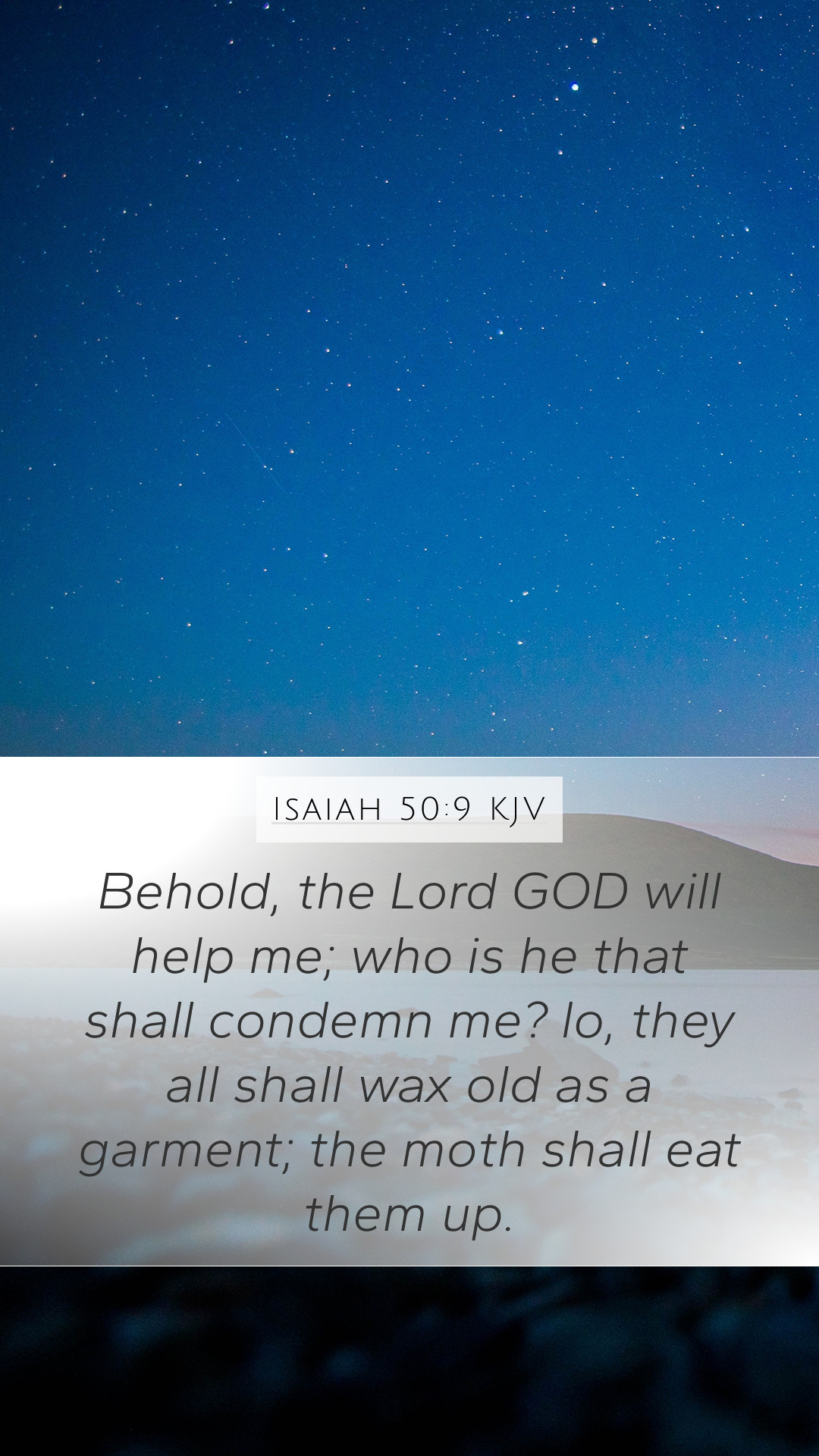Understanding Isaiah 50:9
Isaiah 50:9 states: "Behold, the Lord God will help me; who is he that shall condemn me? Lo, they all shall wax old as a garment; the moth shall eat them up."
This verse encapsulates themes of divine assistance, the transitory nature of human judgment, and the ultimate triumph of God's purpose. Below, we explore its meanings through robust Bible verse interpretations drawn from renowned public domain commentaries.
Key Themes in Isaiah 50:9
- Divine Assistance: The verse begins with a declaration of confidence in God's help, reflecting the believer's assurance in times of adversity.
- Human Condemnation: It challenges the fear of human judgment, emphasizing that God's support is paramount over any temporal condemnation.
- Transience of Humanity: The verse contrasts God’s eternal nature with the fleeting existence of humans—symbolized by garments that wear out and are consumed by moths.
- Ultimate Justice: It reassures the faithful that God’s justice prevails over the judgments of men, comforting those facing persecution.
Bible Verse Commentary
Matthew Henry notes that this verse illustrates the certainty of God's protection and deliverance from adversaries. Henry emphasizes that despite the overwhelming pressures from the world, faith in God's commitment to aid His people leads to unwavering strength.
Albert Barnes expands on the idea of condemnation, suggesting that those who oppose God and His chosen will be ultimately proven wrong, as their judgments are inconsequential against the backdrop of divine authority. He stresses that the ultimate fate of humanity is to decay, while God’s support remains eternal.
Adam Clarke provides insight into the metaphor of garments wearing out, which represents the mortality and frailty of human judgment. Clarke highlights the explicit contrast between God's unchanging nature and the inevitable degradation of earthly powers.
In-Depth Bible Verse Analysis
In this analysis, we explore the historical context of Isaiah 50:9, its application in contemporary life, and its relevance in biblical exegesis.
Historical Context
Isaiah, a prophet in ancient Israel, delivered messages of hope and judgment during a time of great turmoil. This specific verse reflects a period where God’s people faced persecution and condemnation from surrounding nations, yet it reinforces reliance on God's promises.
Application of the Verse Today
For modern believers, Isaiah 50:9 serves as a reminder to maintain faith and courage amidst trials, assuring them that God's support outweighs any challenges faced from the world around them. It encapsulates the essence of Bible study insights, where understanding Scripture in historical and personal contexts enriches faith journeys.
Cross References
- Psalms 118:6: "The Lord is on my side; I will not fear: what can man do unto me?"
- Romans 8:31: "What shall we then say to these things? If God be for us, who can be against us?"
- Matthew 10:29-31: "Are not two sparrows sold for a farthing? and one of them shall not fall on the ground without your Father."
Conclusion
Isaiah 50:9 exemplifies profound truths about God’s assurance during times of despair. Reflecting on its meaning can foster deeper Bible study lessons, contributing to personal faith and collective understanding in Bible study groups.


